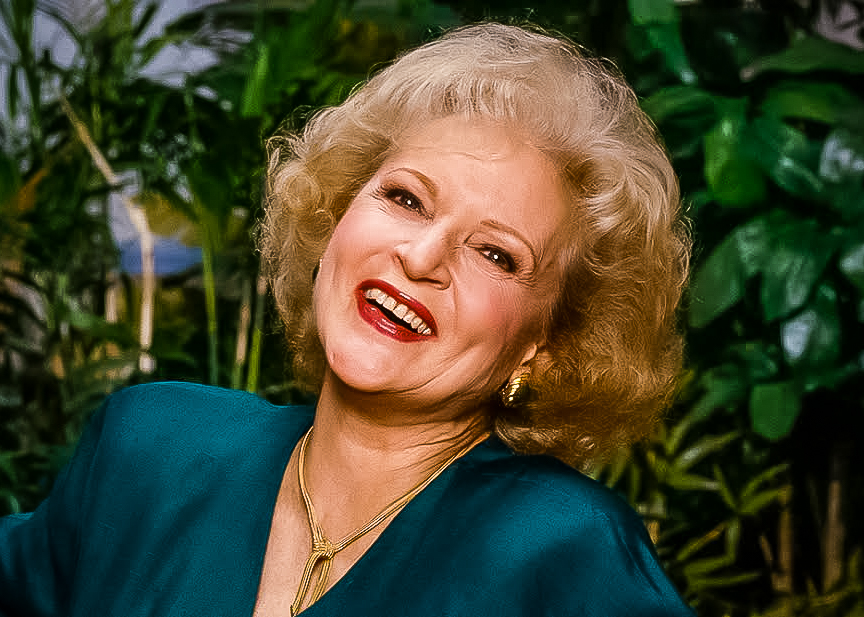An End to a Golden Era
As 2021 came to an end, so did an era of entertainment defined by the “First Lady of Television,” Betty White. Known for her outstanding work in the film and television industries, White sadly passed away on December 31 from a stroke that occurred six days prior. She was just a couple of weeks shy of her hundredth birthday.
Born in Oak Park, Illinois just before the Great Depression, White did not initially plan on becoming an actress. In a 2016 interview from the Television Academy Foundation, White shared her previous dreams of becoming a park ranger. Although this love of wildlife was never fully extinguished (as shown by her book Betty & Friends: My Life at the Zoo), White soon discovered new passions. She took a great interest in acting as a teenager, even writing and performing the leading role in her high school play. That same fervor and drive brought White great success later in her acting career, earning the admiration of millions along with numerous awards, including a People’s Choice Award and the Screen Actors Guild Lifetime Achievement Award.
Most recognize White for her character Rose Nylund in the beloved sitcom The Golden Girls. Airing for seven years (1985-1992) and still streaming today, the show focused on the lives of four older women living in Miami. In an entertainment industry that often sidelines the experience and existence of older women, this show stands out for its treatment of characters like Rose. The Golden Girls audience spans all ages and demographics, including students at Boston Latin School. Caroline Hubbard (IV) remembered White for her warmth, stating, “I think Betty White became so famous because of her charming charisma and her all-around kindness. Her character on The Golden Girls, Rose Nylund, had a sense of innocence that people across the United Unites and around the world loved to watch.”
Younger fans are less familiar with the work that first made White a household name. White starred in her first sitcom, Life With Elizabeth, beginning in 1953, but her pioneering work did not end once the cameras stopped rolling. As the first woman to produce a national TV show, White was making strides for women both behind the scenes and onscreen. She appeared as Sue Ann Nivens in the sitcom The Mary Tyler Moore Show, which highlighted the lives and independence of working women in the 1970s. Reflecting on White’s role in the show, BLS English teacher Mr. Mark Sanford says, “She had a presence. She was a comedic actress, but there was a very fine line between what she did for her comedy roles; you could tell that she could turn the switch and be serious too.”
Over the years, White has also used her platform to speak out on relevant issues including animal rights, marriage equality and racial equity. In 1954, she hosted gifted tap dancer and singer Arthur Duncan on The Betty White Show. The program received racist backlash for featuring a Black artist, and some networks refused to even air it. White, however, did not regret her decision to highlight Duncan’s talent, and they reunited decades later in 2017.
A Betty White fan and BLS AP Government and Politics teacher, Ms. Meredith Elliott reflects on White’s legacy: “With all the negativity and polarization in the country, the response seemed to be pretty universal that this was a kind woman who made people laugh, who cared about her issues, who followed through with her money. […] Because of that kindness and generosity, even though she died peacefully in her sleep, it still felt too soon.”
White’s success in the entertainment industry did not end in the twentieth century. Her recent appearances in movies like The Proposal (2009) and comedy show Saturday Night Live (2010) have introduced a younger generation to White’s comedic talent and wit. In 2010, she made a guest appearance on the TV show Community, playing a formidable anthropology teacher who inspires fear in her adult students.
Betty White was one of the rare artists who both defined and defied the standards of the industry. She will be remembered by fans young and old as a pop culture fixture, and her on-screen presence will forever be immortalized in the numerous television shows and films she contributed to.







